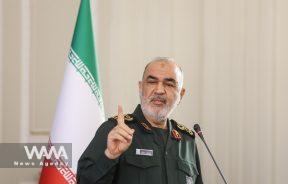G7 Criticized Iran’s Political Influence in West Asia
WANA (Feb 16) – In a joint statement following an informal meeting on the sidelines of the Munich Security Conference, the Group of Seven (G7) nations condemned Iran’s political influence in West Asia.
Senior officials from the G7 countries—Canada, France, Germany, Italy, Japan, the United Kingdom, and the United States—along with the European Union, convened on Saturday evening for an unofficial discussion. One of the key outcomes was the release of a statement criticizing Iran’s regional activities.
According to the Russian news agency TASS, the G7 and the EU denounced Iran’s political influence in West Asia, its nuclear activities, and its actions in the Red Sea region. The statement declared:
“G7 members explicitly condemn Iran’s destabilizing actions, including its rapid uranium enrichment without credible evidence of peaceful intent, as well as its support for terrorist organizations and armed groups in the Middle East and the Red Sea.”
The G7 foreign ministers also accused Iran of human rights violations and condemned its ballistic missile program.
Iran’s Response: Defending a Peaceful Nuclear Program
In response to the accusations, Iranian officials emphasize that their nuclear program is entirely peaceful. In recent months, Iran has held several rounds of discussions with the European troika (France, Germany, and the UK). According to European diplomatic representatives, these talks have been “constructive.”
Iran has consistently expressed willingness to engage in new negotiations regarding its nuclear program. However, former U.S. President Donald Trump abandoned diplomatic efforts by reintroducing a “maximum pressure” campaign against Iran.
Rejecting Allegations of Supporting Terrorism
Addressing the G7’s accusations of supporting terrorist groups, Iranian officials argue that the so-called “Axis of Resistance” consists of nationalist and anti-occupation movements. According to Tehran, Western nations label these groups as terrorists solely due to their opposition to Israeli occupation—a regime supported by G7 countries.
Previously, Iran’s Permanent Mission to the United Nations firmly rejected U.S. allegations made during a UN Security Council session on Yemen. In a letter to the UN Secretary-General and the Security Council, Iran emphasized:
“Washington cannot conceal its complicity in Israeli crimes by accusing Iran. Unlike the United States, which supports Israel’s aggression through arms supplies and financial aid, the Islamic Republic remains committed to the principles of international law, the UN Charter, and Security Council resolutions.”
Iran also reiterated its commitment to resolving the Yemen crisis through a comprehensive political process that ensures the country’s sovereignty and territorial integrity.












